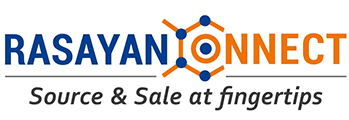In today’s rapidly evolving business landscape, the integration of technology has become essential for optimizing processes, increasing efficiency, and gaining a competitive edge. The chemical industry, which plays a pivotal role in various sectors including manufacturing, healthcare, and agriculture, is no exception. One of the key areas where technology is making a significant impact is chemical procurement, with the advent of Artificial Intelligence (AI) and data analytics revolutionizing the way companies source, manage, and utilize chemicals. In this blog, we will explore the profound role of AI and data analytics in enhancing chemical procurement.
Streamlining Supplier Selection in Chemical Industry
Traditionally, selecting the right chemical suppliers has been a time-consuming and complex process involving a myriad of factors such as cost, quality, reliability, and regulatory compliance. However, AI-powered systems can analyze vast amounts of supplier data, historical performance, and market trends to identify the most suitable suppliers. These systems can also predict potential disruptions in the supply chain, helping procurement professionals make informed decisions. By automating supplier selection, AI eliminates human bias and accelerates the decision-making process, ultimately leading to better supplier relationships and improved procurement outcomes.
Demand Forecasting and Inventory Management
Accurate demand forecasting and effective inventory management are critical for avoiding excess stock and stockouts. AI and data analytics leverage historical data, market trends, and external factors to predict demand patterns with remarkable precision. This enables companies to maintain optimal inventory levels, reduce storage costs, and ensure a steady supply of chemicals. Moreover, AI-driven algorithms continuously learn and adapt based on real-time data, refining their forecasting accuracy over time.
Cost Optimization
Cost considerations are at the forefront of any procurement strategy. AI and data analytics empower procurement teams to analyze vast amounts of pricing data, market fluctuations, and supplier negotiations to identify cost-saving opportunities. These technologies can also recommend alternative suppliers, sourcing regions, or chemical compositions that align with budget constraints without compromising on quality. By optimizing costs through AI-driven insights, companies can allocate resources more efficiently and allocate savings to other strategic initiatives.
Risk Mitigation and Compliance
In the chemical industry, regulatory compliance and risk management are paramount. AI and data analytics can scan suppliers’ historical data, certifications, and compliance records to assess potential risks. These tools can identify suppliers that pose risks related to quality, safety, or regulatory violations, allowing procurement professionals to make informed decisions and ensure that purchased chemicals meet industry standards. This not only prevents potential legal and financial repercussions but also safeguards the company’s reputation.
Real-time Market Insights
The chemical industry is highly susceptible to market fluctuations, geopolitical events, and supply chain disruptions. AI and data analytics provide real-time insights into these dynamics, enabling procurement professionals to make agile decisions in response to changing market conditions. These insights can range from global supply chain disruptions to sudden price spikes. Armed with such information, companies can proactively adjust their procurement strategies, ensuring continuity of operations and minimizing the impact of external shocks.
Conclusion
The convergence of AI and data analytics with chemical industry procurement is transforming the way businesses source and manage chemicals. From supplier selection to demand forecasting, cost optimization, risk mitigation, and real-time market insights, these technologies are enhancing efficiency, reducing costs, and enabling more strategic decision-making. As the chemical industry continues to evolve, companies that embrace these AI-driven capabilities will not only streamline their procurement processes but also gain a competitive advantage in a complex and dynamic global marketplace.


